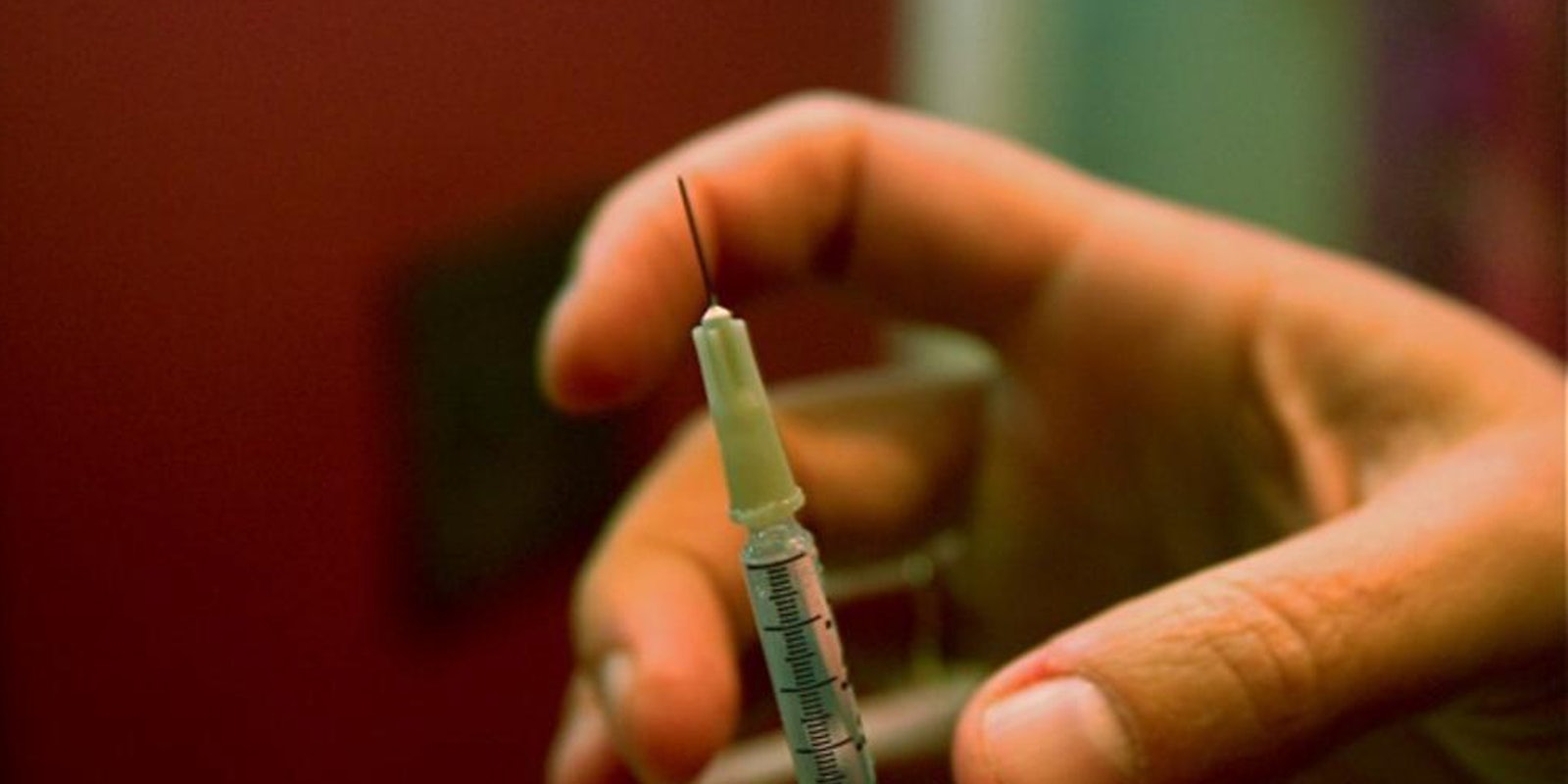Although there are a panoply of options available for female contraception—hey there, pill! Hiya, IUD! What’s up, female condom that looks like those rainbow-colored inner tubes you used to crawl through during third-grade gym class!—researchers have been trying to develop a form of male birth control for years, to no avail.
It seems, however, that the future of male birth control has arrived in the form of Vasalgel, an injectable drug that blocks sperm from traveling to the penis. In layman’s terms: It’s a gel that you inject into your bathing suit parts so you shoot blanks instead of full rounds.
Basically, here’s how it works: The gel is injected into the vas deferens, the tube that delivers sperm from the testes to the penis. Vasalgel would essentially block sperm from traveling to the penis. In essence, the drug serves the same function as a traditional vasectomy, except without the pesky snip-snip involved. (Much like a vasectomy, the procedure will also likely be reversible.)
Currently, researchers are conducting tests on baboons to determine Vasalgel’s efficacy. So far, it looks pretty good: According to the Daily Mail, a male baboon injected with Vasalgel and placed in an enclosed area with a group of female baboons has failed to impregnate any of them after six months. That’s bad news for the lady baboons, but good news for human males looking for a birth control option beyond wearing condoms or trying to pick up women at bars while wearing Google Glass.
Vasalgel is being funded by the medical research organization the Parsemus Foundation, which has been trying to develop a non-hormonal male contraceptive for years. (The group has also been instrumental in the development of RISUG, a similar male contraceptive gel that is also injected into the vas deferens.)
While news of Vasalgel’s development bodes well for men, as well as the future of contraception as a whole, a few lingering questions remain: How effective is it? How long do said effects last? Will dudes actually consent to having a cold gel injected into their junk, the same way women have been consenting to invasive procedures like contraceptive implantation for years?
We’ll find out soon enough: The Parsemus Foundation is currently launching clinical trials—sign up here if you’re interested—but they’re hoping to get the drug on the market by 2016 or 2017.
H/T Daily Mail | Photo by Steven Depolo/Flickr (CC BY 2.0)


